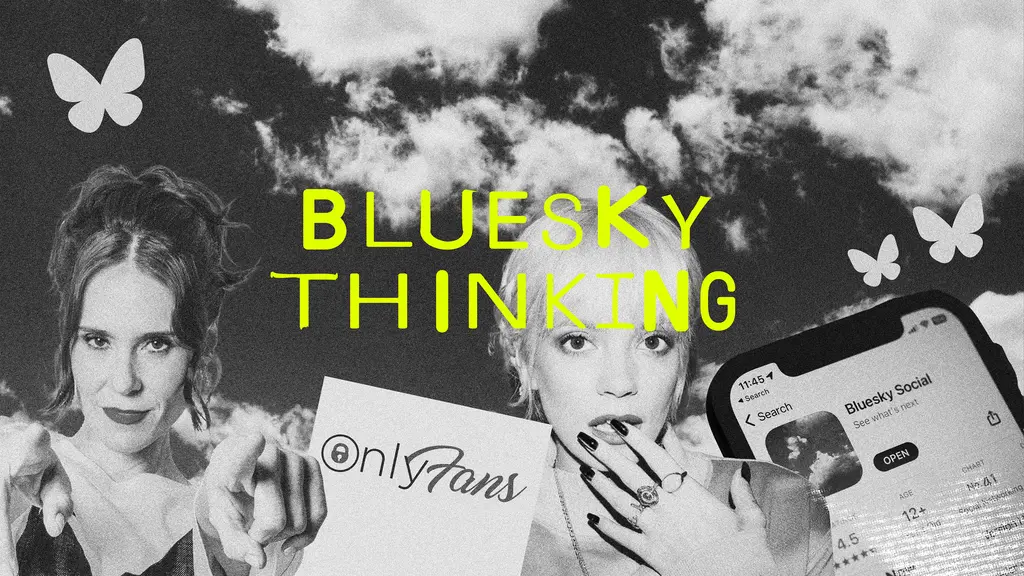The Slumflower is a small part of a much bigger problem
- Text by Esmé Ara’resa

There are two camps of Feminism in the digital world; those that join the dance and those that lament LATE STAGE CAPITALISM’S COMMODIFICATION OF ALL-THE-THINGS!
I’ve turned off my proverbial caps lock button. More accurately, it was worn down, push by push, over many years of participating in feminist discourse online. What was dispiriting to me was the slow realisation that the dissenting camp is just as broken in its politics as the dancing camp is accused of being. A few years ago, I decided to disengage from basically all popular forms of feminist activism. I decided to focus my resources on the deep work of living in a way that makes the world a more liberating place for myself and other women, quietly. But ignoring problems doesn’t really make them go away, especially not when it pays to be problematic.
Enter Chidera Eggerue, professionally known as The Slumflower. She is the author of the bestselling book on self-love What a Time to be Alone, a TED Talk speaker, and the social media influencer behind hashtags #SaggyBoobsMatter and #BlockHimParty. It would be unfair to call Eggerue the problem. It’s not her, it’s what she represents. Given what can at best be described as liberally borrowing from other feminist thinkers her politics have always been a little wanting. Recently she morphed from body-positive spokesperson/ playfully abrupt agony aunt into a hyper-capitalist using the feminist label as a carte blanche for little more than raging misandry. A few recent, choice tweets (now deleted) include:
“I don’t have time to think about the reasons why the system you created at my expense to benefit you is now choking you…If men are committing s*icide because they can’t cry, how’s it my concern?”
“Men are murdering us and abusing children and you think I have time to theorise on why they can’t cry? Lmao not me hun.”
“Until young men are being married off at the age of six and having acid thrown in their faces for declining sexual advances, you can’t change my mind.”
If this was all you had heard of Eggerue before, you might be forgiven for assuming she is uniformly unpopular. Rather, an interestingly diverse set of people seek to defend and protect her both personally and in terms of her politics. Neoliberal writers and cultural commentators argue that any opinion held by a woman is valid and feminist, just a different type of feminism. Some academics and activists argue that pushing back against her is elitist gate-keeping. Young supporters who feel affirmed by her message of self-preservation, self-love and digestible, liberal interpretations of feminist theory feel deeply confused or offended when you speak against her.
Adding to this, there is a difficulty in critiquing Eggerue openly due to how easy a victim she is. She isn’t likeable. She doesn’t entirely fit in – with her Blackness, her roots in (pre-gentrification) Peckham, her university dropout status, and her youth. Despite her achievements and relative popularity, these qualities will do little to redeem her if and once certain elements of mainstream media decide her opinions are newsworthy, making it conflicting for those with honest intentions to openly criticise her. These dynamics are all due to Eggerue being one of the very few female voices – and specifically, very few black, female voices – represented in the media. Among feminists who are black there seems to be a collective consciousness that to go against her is to have even less representation, or to risk becoming the go-to black person used as evidence against the misogynoir levelled against her. So there is a tacit resignation among fellow black feminists to pick battles and leave her rhetoric under-challenged – admittedly, I am only writing this piece because white feminists in mainstream media who are ill-equipped to criticise Eggerue are doing exactly what many of us foresaw they would.
Nonetheless, these dynamics work perfectly to Eggerue’s end, which she plainly shares is to ‘secure the bag;’ keeping the pop feminist platitudes and the outrage flowing grows her platform, a tested means to the end of more money. She intelligently navigates the dynamics that enable her, choosing which tweets to double down on and which to delete then tamely repackage to the press. While some might find this distasteful, it must be stressed that neither Eggerue nor any other opinionated person owes the Internet their agreeableness. At the very least, however, we all owe it to one another to be responsible and ethical.
I question how responsible it is to peddle transactional relationships like having groceries paid for and dating rich white men as feminist, reparational acts when feminism is by definition structural and not interpersonal. I question how ethical it is to make intellectually dishonest claims about the reasons for male suicide in order to justify why not to care about it or make it a feminist priority. I question how responsible it is to seemingly romanticise male genocide.
I mostly question how a brand of feminism that claims not to care about men, seems so intensely obsessed with them. Whilst Eggerue is ‘guilty’ of all of the above, she isn’t alone. Followers have said that she admits coming into her ideas on self-worth and feminism after spending over a year getting over a man she had dated for three months. I think deep, unresolved pain is most people’s route and anchor to Popular Feminism. Whilst the movement can be a powerfully cathartic force for its participants, it isn’t healthy or sustainable for that pain to remain unresolved, unstudied. All it truly is, is profitable. Yet whenever The Slumflower decides to pursue new business, the opportunity won’t disappear with her. We, the varying stakeholders, will simply bestow the social currency upon another charismatic personality, and another, and another because Pop Feminism necessarily fails to dig deeper than the idea of equity and liberation favouring go-getting individuals. This is the problem.
Esmé is a writer, entrepreneur, and author of the new eBook Everyday Wellbeing available in May 2019. Follow her on Twitter.
Enjoyed this article? Like Huck on Facebook or follow us on Twitter.
You might like

Riot grrrl is back. Do we need it more than ever?
Femme punk forever — With social media driving renewed interest in the early ’90s movement, which blended feminist politics with brash punk music, we spoke to vanguards of the genre’s new wave, who are reviving its ethos as women’s rights come increasingly under attack.
Written by: Kurt Suchman

Have capitalists killed the internet?
At the start of the century, the internet was an escape from reality. Now, reality is an escape from the internet writes Huck Newsletter columnist Emma Garland.
Written by: Emma Garland

How Black women transformed British photography
Joy Gregory’s new photo book takes a comprehensive look at the work of a generation of artists whose recognition is long overdue.
Written by: Miss Rosen

Meet the trailblazers changing the face of porn
Across the adult industry pioneering intimacy co-ordinators are ushering in a new understanding of consent, collaboration and connection.
Written by: Brit Dawson

The everyday voices silenced in our coverage of the Middle East
Until women and young people are heard, we won’t break this cycle of destruction and dehumanisation, argues director Maysoon Pachachi.
Written by: Maysoon Pachachi

Suella Braverman has declared a war on rights that we must win
The Home Secretary's latest attack on the rule of law must be resisted writes lawyer Raj Chada.
Written by: Raj Chada

